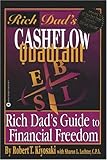 Are you a heavy tech user that paradoxically hates being so digitally connected? You’re not alone, according to The Mobile Difference, a new report by the Pew Internet & American Life Project.
Are you a heavy tech user that paradoxically hates being so digitally connected? You’re not alone, according to The Mobile Difference, a new report by the Pew Internet & American Life Project.
According to this organization’s website, they are a “non-partisan, non-profit ‘fact tank’ that produces reports exploring the impact of the internet on families, communities, work and home, daily life, education, health care, and civic and political life” that was started in late 1999.
Their researchers surveyed a random & representative sample of 2,054 US residents in 2007. From that survey, they came up with ten categories of people grouped by their usage of technology.
One group of heavy technology users – the Ambivalent Networkers – don’t actually like their level of connectedness. And no, these people aren’t who you think they are. Ambivalent Networkers are mostly males in their late 20s, the post-college working-professional crowd. Not quite what you’d expect, huh? Or, perhaps, exactly what you would expect.
The ten groups identified by this report are:
- Digital Collaborators – 8%
- People using technology to collaborate with others and share their creativity with the world. This group has the greatest number of information gadgets of any group, the widest scope of online activities, and the most frequent internet habits.
- Ambivalent Networkers – 7%
- People using mobile devices heavily to connect with others and entertain themselves, but they don’t always like it when the cell phone rings. They rely on mobile devices to connect socially with others or to entertain themselves. Yet, they feel that this connectivity can be intrusive at times.
- Media Movers – 7%
- People using online access to seek out information, then happily pass them along to others via desktop and mobile access. They do not see information & communication technology as a key part of their personal productivity, but as a way to keep in touch with family and friends.
- Roving Nodes – 9%
- People using their mobile devices to connect with others and share information with them. They use social networking sites to mediate communication among their crowd, but are not much into blogging or maintaining their own web pages.
- Mobile Newbies – 8%
- People lacking robust access to the internet but like having their cell phones. They mostly use the plain old fashion voice capability of the mobile device, although occasionally they will fire off a text message to someone. The internet is very much on the periphery for this group of people.
- Desktop Veterans – 13%
- People dedicated to wireline access to digital information and enjoy how it opens up the pipeline to information for them. They use the internet actively for information gathering, staying in touch with others and enhancing their productivity. However, they are not heavily cell phone users.
- Drifting Surfers – 14%
- People who are light users and say they could do without modern gadgets and services. They will skip a day of using the internet without worry, and are likely to be emailing or checking news headlines when they do log on. Blogs and online video are not much of a concern for them.
- Information Encumbered – 10%
- People who feel overwhelmed by information and inadequate to troubleshoot modern information & communication technologies. Most often feeling information overload, they also need help in getting their devices and services to work. Old media such as the TV or landline telephone suit them fine.
- The Tech Indifferent – 10%
- People who are unenthusiastic about the internet and cell phone. They are infrequent online users and do the majority of phone calling on their home landlines. Not many in this group would care if they had to give up their cell phone or online connection.
- Off the Network – 14%
- People who neither use cell phones or the internet. This is a group of older, low-income Americans. While some have computers, they are not currently connected to the network (although some used to be).
Are you an Ambivalent Networker? Or a Drifting Surfer? Or a Desktop Veteran? Take this survey and find out.
Here are my results:
You are an Digital Collaborator
“If you are a Digital Collaborator, you use information technology to work with and share your creations with others. You are enthusiastic about how ICTs help you connect with others and confident in how to manage digital devices and information. For you, the digital commons can be a camp, a lab, or a theater group – places to gather with others to develop something new.”
That sounds about right. I like being connected and feel pretty confident that technology enables me to be more productive. With this blog, my writing blog, a Twitter account, a Flickr account, a Facebook account, a LinkedIn account, and a many more, I’m definitely sharing information.
What kind of tech user are you?





